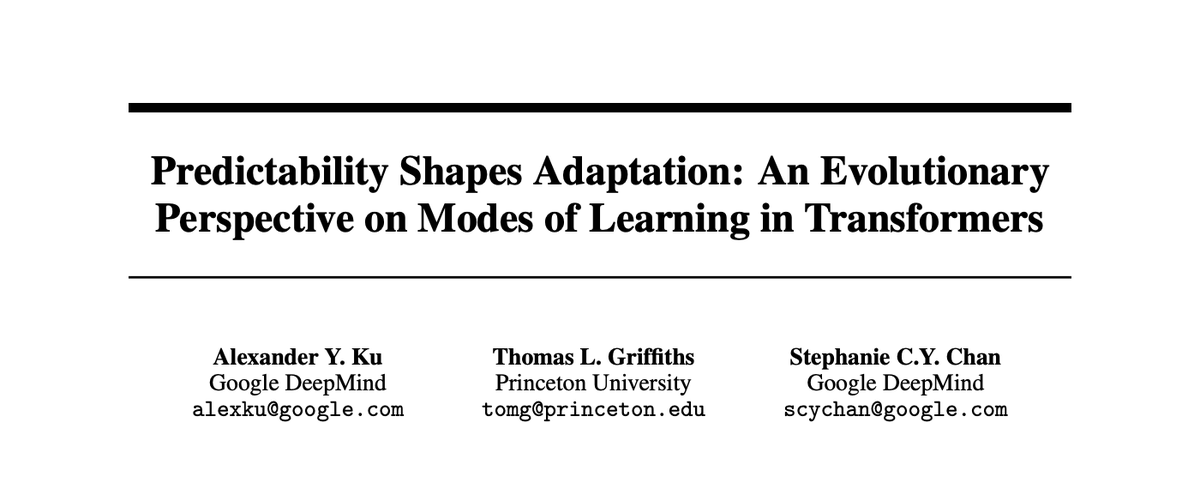
Griffiths Computational Cognitive Science Lab
@cocosci_lab
Tom Griffiths' Computational Cognitive Science Lab. Studying the computational problems human minds have to solve.
ID: 1291487042921168898
http://cocosci.princeton.edu/ 06-08-2020 21:31:29
167 Tweet
5,5K Followers
130 Following


Excited to share that our paper is now out in PNASNews! 🎉 Check it out: pnas.org/doi/10.1073/pn… Code and data: github.com/baixuechunzi/l… Big shoutout to my amazing coauthors Angelina Wang @angelinawang.bsky.social Ilia Sucholutsky Griffiths Computational Cognitive Science Lab!





Happy to share my first first-authored work at Griffiths Computational Cognitive Science Lab. Determining sameness or difference between objects is utterly trivial to humans, but surprisingly inaccessible to AI. Meta-learning can help neural networks overcome this barrier. Link: arxiv.org/abs/2503.23212 (1/5)

We are looking for a new lab manager, shared with the Concepts and Cognition Lab of Tania Lombrozo. Apply here: research-princeton.icims.com/jobs/20656/res…



🚨 New preprint alert! 🚨 Thrilled to share new research on teaching! Work supervised by Griffiths Computational Cognitive Science Lab, Yael Niv @yaelniv.bsky.social, and Mark Ho. This project asks: When do people teach by mentalizing vs with heuristics? 1/3 osf.io/preprints/osf/…












